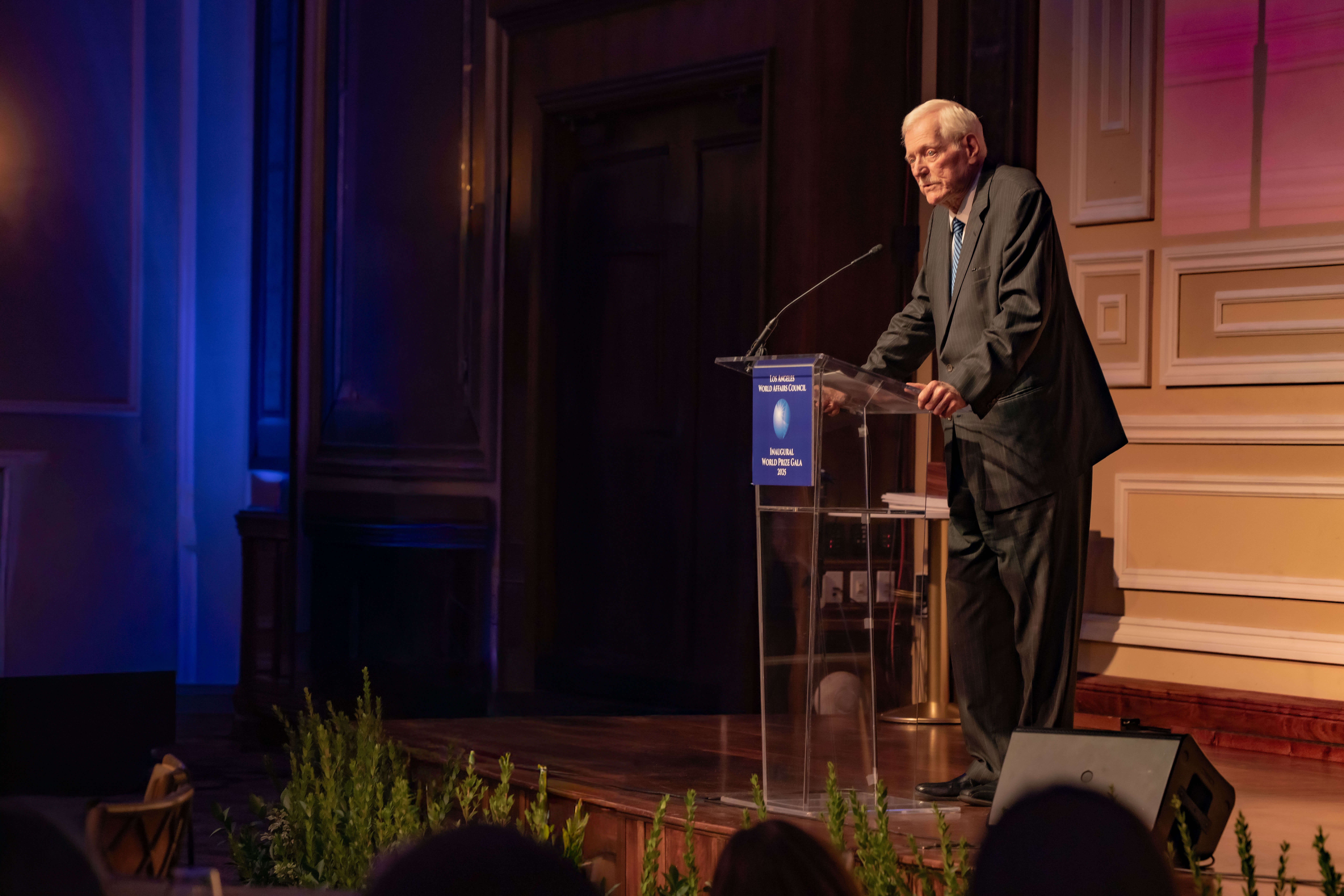World Prize Gala
Remarks by Robert J. Abernethy
September 30, 2025 | Los Angeles, California

Good evening, everyone.
My journey into international affairs began when I was six
years old.
I remember learning about Roosevelt, Churchill, and De
Gaulle, three leaders who, in the darkest days of World War
II, dared to ask a bold question: What can we do to prevent a
third world war?
Their answer was not just victory on the battlefield, but
cooperation. Building ties between countries through trade,
diplomacy, and shared values, contributing to the hope that
the emergence of an integrated Europe would make the
continent not only more prosperous but also more peaceful.
Thus, the Treaty of Paris spoke of the need for “a broader
and deeper community among peoples long divided by
blood” followed by the European Coal and Steel
Community. By 1957, the Treaty of Rome expanded this
idea into the European Economic Community, the first step
toward a common market and eventually the European
Union.
That is the spirit for which the Los Angeles World Affairs
Council stands. And that is why I urge us tonight, not only to
reflect upon what we believe, but what we can do.
Because what we do here at home ripples across the world,
and what happens abroad comes back here, to Los Angeles.
Look at our city: one of the most diverse cities on earth,
home to immigrants making major contributions to our lives,
refugees, and entrepreneurs from every corner of the globe.
Our ports handle nearly half of America’s containerized
trade. Decisions about tariffs, NATO, or conflicts in Ukraine
or the South China Sea are not distant stories. They shape
our economy, our security, our daily lives.
But the rules-based order is eroding. Great-power rivalry is
intensifying. Authoritarian models are hardening.
For years, we assumed that engagement with authoritarian,
nonmarket countries would eventually lead to convergence
toward open societies and democratic values. But that
convergence has proved elusive. And our multilateral
institutions, from the WTO and the Paris Agreement to the
Ukrainian Coalition and the UN, need strengthening.
The stakes are high. The rule of law, globally and here at
home, is under pressure from corruption, authoritarianism,
and nationalism.
At home, polarization and doubt threaten to weaken the very
institutions that hold our democracy together.
But the United States cannot lead by dictating terms. We
must lead by example. By building coalitions. By earning
trust.
That is how progress has always been made.
This is not just a transition, it is a rupture. A sharp break in a
short period of time. And we must rise to meet it.
Here’s what I’m doing in my own small way:
I serve as a founding board member of the International
Refugee Assistance Project, which provides legal aid to
those fleeing violence and persecution.
I publish Democracy: A Journal of Ideas through the Center
for the Study of Democratic Institutions.
Over the next year, we are producing six issues to lay out the
global and democratic priorities the next administration must
confront. And in January, we will convene a conference in
Washington to bring these ideas together.
But it cannot just be me. We each need to ask ourselves:
What can I do?
What can you do in LA, in Southern California, in your
neighborhood to make a difference?
And I want to be clear: there is an opportunity to do so right
here, through this Council founded in 1953.
This is not just a forum for lectures, it is a community.
You can join committees, support student fellowships, help
us host visiting delegations, or bring your own professional
and civic experience into the global conversations we
convene. The Los Angeles World Affairs Council thrives
when its members are active, engaged, and bold.
No one of us can fix everything. The problems we face are
too big. But if enough of us move the needle even a little,
that matters. That’s how history shifts.
That is why this Council matters. That is why your voice
matters.
Thank you
